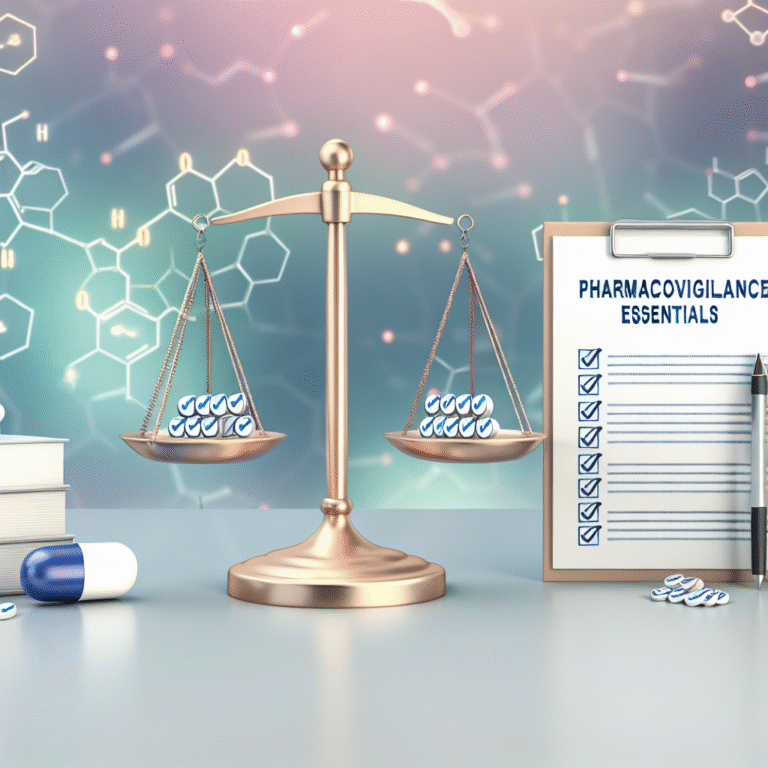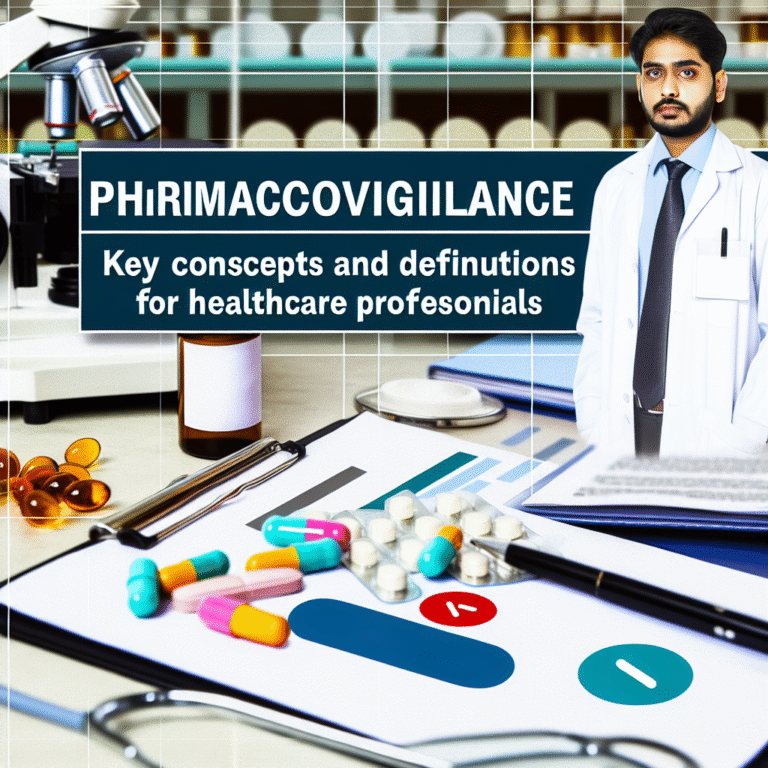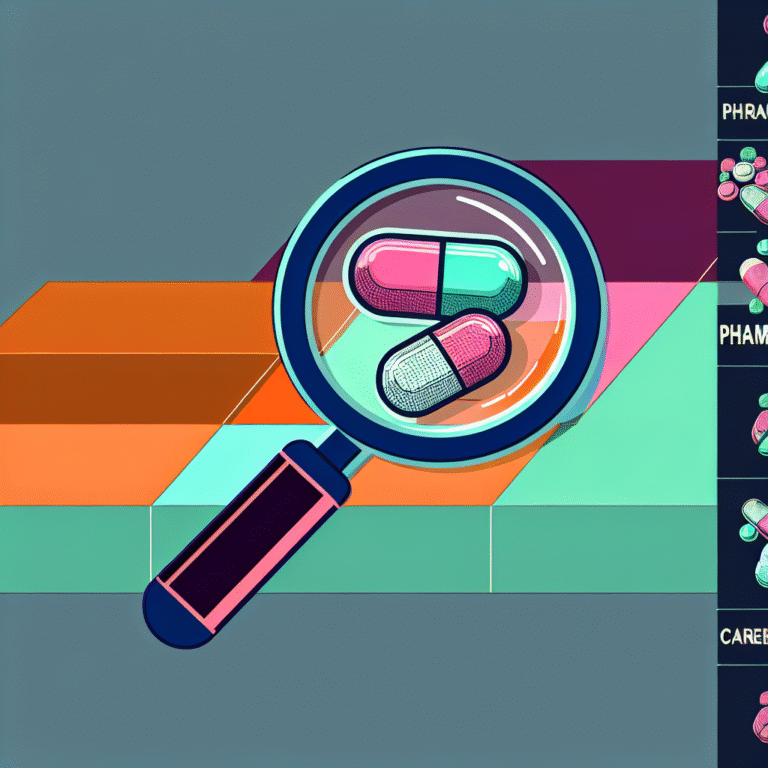Essential Steps to Becoming a Pharmacovigilance Specialist: Skills and Career Path
Essential Steps to Becoming a Pharmacovigilance Specialist: Skills and Career Path
Introduction
Pharmacovigilance is a big word that means making sure drugs are safe and keeping people healthy. It’s about watching, checking, and stopping bad effects from medicines and healthcare. As new medicines are made, more people are needed to make sure these medicines are safe. This post is here to help you understand how to become a pharmacovigilance specialist, the things you need to learn, and what your job might be like.
Understanding Pharmacovigilance
Pharmacovigilance is all about knowing if medicines cause any problems and making sure they are safe to use. It’s like being a detective but for medicine! Here’s what it involves:
– Watching how medicines affect people and checking for any risks.
– Making sure patients are safe and spotting any new side effects.
– Learning more about medicines and how to use them safely.
The process has a few stages: collecting information, checking risks, and reporting. Doctors, nurses, patients, and safety groups all work together to keep medicines safe.
Educational Requirements
If you want to work in pharmacovigilance, education is important. Here’s what you need to do:
1. Get a Degree:
– Study pharmacy, biology, or a similar field for a foundation in drug safety.
2. Advanced Studies:
– Getting a master’s or Ph.D. in pharmacovigilance or something similar can help you know more.
3. Important Subjects:
– Learn about pharmacology, toxicology, and other subjects that help you understand how to keep drugs safe.
Essential Skills for Pharmacovigilance Specialists
To do well as a pharmacovigilance specialist, you need certain skills. Here’s what you need to know:
1. Be Good at Analyzing: You need to look at lots of data and find any problems.
2. Pay Attention to Details: You have to be careful when watching medicine effects and writing reports.
3. Communicate Well: You need to write and talk clearly to share information and work with others.
4. Know the Rules: It’s important to understand healthcare rules to know how to work in the field.
5. Solve Problems: Fixing problems quickly and well is very important.
6. Manage Projects: You should be able to work on several tasks and finish them on time.
7. Use Computers: You need to be familiar with software and databases to manage electronic reports.
8. Think Critically: See beyond the obvious to find risks and solutions.
9. Work in a Team: You must work well with others in different departments and organizations.
10. Keep Learning: Stay updated with new industry trends and changes in the field.
Gaining Relevant Experience
Getting practical experience is important for becoming a pharmacovigilance specialist:
1. Try Internships: Work at pharmaceutical companies or safety groups to learn hands-on.
2. Start in Entry-Level Jobs: Begin as a drug safety helper or clinical research assistant.
3. Network: Making connections in the pharmaceutical world can help you find jobs.
4. Volunteer: Doing volunteer work related to healthcare and drug safety can look good on your resume.
5. Join Professional Groups: Get involved in pharmacovigilance groups to network and learn more.
6. Find a Mentor: A mentor can give you good advice and help you progress in your career.
7. Go to Conferences: They help you learn about new trends and meet other professionals.
8. Take Online Courses: Learn more through online courses about pharmacovigilance and drug safety.
9. Join Workshops: These help you learn practical skills in pharmacovigilance.
10. Write Publications: Sharing your knowledge in scientific papers can show your expertise.
Certification and Continued Education
Getting certified can improve your job prospects:
1. Take Certification Programs: Groups like DIA and ISOP offer courses that show you are skilled.
2. Keep up with Regulations: Regularly learning about new regulations is important in this changing field.
3. Develop Professionally: Special training can help deepen your knowledge and skills.
4. Spot Industry Trends: Knowing what’s new in the field keeps you ahead.
5. Use Online Learning: Websites like Coursera or LinkedIn have courses you can take.
6. Cross-Train: Learning related fields like clinical research can expand your knowledge.
7. Learn Independently: Reading reports and journals by yourself can increase your understanding.
8. Get Feedback: Listening to advice from peers and mentors helps you improve.
9. Attend Workshops and Conferences: These events help you learn and connect with others.
10. Practice Simulations: Doing practice scenarios helps you understand real-life situations better.
Career Path and Advancement Opportunities
A career in pharmacovigilance is varied and rewarding:
1. Start in Entry-Level Roles: Begin as a Drug Safety Associate to gain experience.
2. Advance: Move to roles like Senior Drug Safety Specialist with more experience.
3. Manage: Work up to being a Pharmacovigilance Manager.
4. Consult: Become a consultant for pharmaceutical companies.
5. Regulatory Work: Work with authorities like the FDA to help public health.
6. Teach: Move to a teaching or research role at a university.
7. Explore Globally: Work with international teams or global organizations.
8. Specialize: Focus on areas like signal detection.
9. Work in Different Sectors: Work in biotechnology or research organizations.
10. Start a Business: Open your own consultancy firm.
Tools and Technologies in Pharmacovigilance
Knowing the right tools is important:
1. Use Pharmacovigilance Software: Programs like Argus help manage data.
2. Understand Reporting Systems: Know how event reporting systems work.
3. Use Databases: You’ll need to know safety databases for data analysis.
4. Detect Signals: Use software to find safety signals.
5. Mine Data: Use techniques to find data patterns.
6. Know New Tech: Be aware of AI use in pharmacovigilance.
7. Use Health Records: Work with electronic health records.
8. Use Mobile Apps: Collect patient outcomes with mobile apps.
9. Employ Cloud Computing: Manage data with cloud technology.
10. Visualize Data: Use tools like Tableau for displaying data.
Challenges and Opportunities in Pharmacovigilance
Pharmacovigilance has challenges but also many opportunities:
Challenges:
– Managing lots of data and keeping it accurate.
– Keeping up with changing rules.
– Working with different groups with different needs.
Opportunities:
– Keeping people safe and healthy.
– Using new technology for drug safety checks.
– Using personalized medicine for better safety.
Conclusion
Becoming a pharmacovigilance specialist is a great journey with chances to positively impact public health. By following the steps, gaining experience, and updating your skills, you can have a great career in this field. Pharmacovigilance Foundations encourages you to pursue this rewarding career path. As the field changes, dedicated specialists will be needed to make sure medicines are safe. The future is bright for those committed to drug safety!





